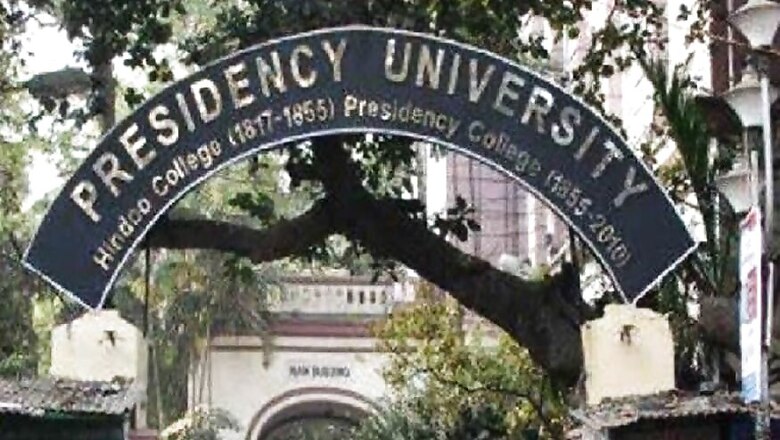
views
It isn't every day that an Indian educational institution gets to exhibit two Nobel laureates in its alumni list (In fact, three Nobel laureates, if you count Rabindranath Tagore's brief stint at Presidency University).
But, then again, Presidency University or Presidency College (as it was formerly known), isn't just another educational institution. With a legacy of over 200 years looming large from its hallowed arched hallways, history steeped deep into its graffiti-covered walls, and a whiff of revolution and dissent always hanging in the campus air, this university has provided education to some of India's most illustrious individuals such as Rajendra Prasad, Subhas Chandra Bose, Swami Vivekanda, Jagdish Chandra Bose, Michael Madhusudan Dutt, Satyendra Nath Bose, Prafulla Chandra Ray, Satyajit Ray, Aparna Sen and many others.
However, the latest Presidency alumnus to grab headlines has been economist Abhijit Vinayak Banerjee, who along with Esther Duflo and Michael Kremer, won the Nobel Prize for Economics this year.
The 202-year-old educational institution recently announced that Banerjee will be conferred with the 'Atul Chandra Gupta Distinguished Alumnus Award' by Presidency's Alumni Association and the university is already gearing up to organise an event to felicitate Banerjee in January when he is scheduled to visit Kolkata.
Although Banerjee is the ex-Presidencian in the limelight now, the economics department of the university from which he graduated in 1981 has produced many legendary economists over several decades, including another Nobel laureate Amartya Sen.
Many may ask what is it about Presidency's education system, specifically of the economics department, that produced such brilliant achievers, but ex-Presidencians of the same department are quick to point out that it isn't the 'education system' but the penchant of Presidency professors to move beyond that system, the coterie of brilliant young students who always questioned the system, and the environment of the college which fostered plurality of views and encouraged intellectual debates and discussions, that played a major part in not only producing Nobel winners, but also many original thinkers who are brilliant economists.
A League of Extraordinary Educators
For many decades, the economics department of Presidency College had a galaxy of star-studded professors, said ex-students. Anup Sinha, an alumnus and currently the Director of Heritage Business School and Chairman of Bandhan Bank, said, "During the '50s, '60s and till about early '70s, Presidency College had, in its undergraduate department, a star-studded team of faculty members."
"There were people like Bhabatosh Datta and Dhiresh Bhattacharya, followed by Tapas Majumdar, Dipak Banerjee, Mihir Rakshit, Amiya Bagchi and Nabendu Sen. These faculty members had a collective vision for the department and they would often say that 'The Presidency College's economics department is a nursery for future economists and teachers.'" he added.
"Each of them had a unique style of teaching. There were professors like Tapas babu (Majumdar) who could carry the worst student in the class and yet stimulate the best during the same lecture," Sinha recalled.
Mihir Rakshit, on the other hand, was the class terror of his time. "He was very strict. He would often tell the class, 'look, you have joined Presidency College's economics department not to get a first-class. What marks you get is your business. You are here to learn economics."
However, the bonafide legend of the department was Dipak Banerjee. The entire country may be celebrating Abhijit Banerjee's Nobel win now, but talk to any economics department alumni of Presidency College and the only economist they will ever gush about is Abhijit’s father, Dipak Banerjee.
Often remembered as 'the star professor', DB, as he was popularly known, was loved, revered and feared in equal measures by his students.
"Dipak babu would just call our entire class ‘gadhar dol’ (a herd of donkeys)" recalled Subrata Sarkar, another ex-student who is currently a professor at Indira Gandhi Institute of Development Research.
Sarkar remembered DB, as someone who 'looked like Clint Eastwood' and was a deeply caring person, despite his apparent sternness. "Not just DB, all the teachers were more than just professors. In some sense, they were like our parents. Our real parents would think that we were going to Presidency College, so we must be doing very well. But, it was these professors, who actually made sure that we did," he added.
Sarkar was a year senior to Abhijit Banerjee in college and remembers him as a 'quiet and a lanky fellow' as a college-goer. "He (Abhijit) always came across as a very affable person, someone who is approachable. His father (DB) was the head of the department, so obviously he could not run around making a fool of himself," said Sarkar.
"We were very intimidated by his father. He may not have been that intimidated by his dad at home, but in college, obviously he had to be a little quieter," he added.
DB, however, was quite a hell-raiser as a student himself. The campus legend about DB that ex-students are very fond of retelling is that he was a student of the Chemistry department of Presidency College, but he never quite liked the subject.
Hence, instead of completing his under-graduation, he went to England as a castaway in a cargo ship. Once he got there, he did odd jobs and saved up enough to apply to the London School of Economics and got through.
His colleague and lifelong friend, Tapas Majumdar, has a slightly different story to tell about DB's London adventures, but this rebellious image of DB's youth had always baffled and thrilled his students.
"The cargo ship story was really exciting for us young boys and girls," recalled Sujoy Chakravarty, an Economics Professor at JNU, who was an undergraduate at Presidency in the early 90s.
"The staid-looking professor, with a thick British accent, was actually a hell-raising guy was a very thrilling concept for us," he added.
Another thing that was often said about DB was that one will not forget his teachings even if he or she was in the worst moments of crisis. Zakir Husain, an ex-student who is now a professor at Presidency University said that this may indeed be a correct observation.
"In 1987 when I was a student at Presidency, I remember I had a problem understanding a mathematical derivation, so I went to DB and he explained it to me. After three decades, in 2017, when I wanted to teach the same problem in my class, I did not get time to go over it before. So, I dived straight into it in the class itself and I was surprised to see that I remembered every single thing he had taught me," said Husain.
Sujoy Chakravarty said that it wasn't just DB, there was a certain kind of greatness in professors like Nabendu Sen and Bhabhatosh Dutta as well.
"They sat in their little offices in Kolkata, which is quite cut off from where the mainstream research was happening, yet they were frontier in conducting research themselves. And, the astounding thing was that they did it with very little infrastructure," he added.
Over the last several decades, the economics department has indeed nurtured many brilliant students and although the league of extraordinary educators deserve some credit for their students' accomplishments, the students they taught too, be it Amartya Sen, Abhijit Banerjee, Pranab Bardhan, Debraj Roy or Maitreesh Ghatak, were themselves extraordinarily talented disciples, pointed out Chakravarty.
"By the time we were there (during the '90s), it was already a well-reputed college. So, it self-selected a bunch of really good students. Through an entrance exam, they only took 30 people from thousands of applicants, so obviously only the very bright minds got through. Most of my classmates were pretty smart too and a lot of them are in top positions in different places now." he added.
Education More Than Just a Meal Ticket
The idea that was projected to us was that exams and marks are not important, but what is important was gathering knowledge, said Mausumi Das, an alumna of Presidency College who is currently an Associate Professor of Economics at Delhi School of Economics.
"Nobody would ever ask you about marks or even care about the fact that the university exams are coming. So, in some sense, the tutorials and classes were more important than the actual exams. What kind of questions you asked the teachers or how the teachers are responding to the questions asked by you, would determine your status as a student," she added.
Das recalled that there was a sort of disdain towards university exams and the internal examinations' question patterns were distinctively different from it.
"The internal exams weren't the mugging up kind, so that was a far superior exam in students' minds. If a student did well in that exam and didn't do well in a university exam, then somehow we all would feel that 'oh, this guy is very bright, but he simply couldn't mug up.'" said Das. "The general impression that the teachers gave us was that you have to read widely and not just mug up for exams," she added.
Soumyen Sikdar, professor of economics, IIM-C, and also a visiting faculty at Presidency, said that one of the best things about Presidency was that most teachers did not spoon-feed the students. Instead, they encouraged the students to think for themselves.
Recalling his own student days at the college, Sikdar said, "Generally, professors did not consider the syllabus set by Calcutta University at all. They would teach whatever they thought would help students become better economists. It was always a lively place, filled with discussions and debates. Many students were well-read which brought many different views to the classroom."
They (the professors) kind of provided a small gateway into the world of academics too; although they didn't directly teach anything about research at the undergraduate level, said Sujoy Chakravarty. "Many of my professors were also engaged in research at the time. I think it told us that education was more than just a meal ticket. You have to go out there and say your piece," added Chakravarty.
A Cradle of Plurality and Tolerance
The three defining P's of Presidency University that every student who ever went there will tell you about are — politics, 'prem' (romance) and porashona (studies). Mostly, the importance given to each of these Ps is also in the same order, which makes political activism an integral part of Presidency education.
However, even those who never actively participate in student politics are expected to, and generally, do have political opinions. It is hard not to, when every wall of the college building had slogans such as, 'Accept Existence or Expect Resistance', 'No emotional, intellectual, physical servitude' or more cheeky ones like "Mother, should I trust the government?" or "Amon Kichu Mogoj aache, jar Mogoj dholai cholena' (There are some brains, that cannot be brainwashed.) scribbled on them, in various handwritings, and poster colours over the 'Stick No Bills' signage.
There are hunger strikes, protest marches, candlelight vigils every week and every current political development, not matter in which part of the world it is unfolding in, is a topic of discussion in the Presidency canteen.
Presidency politics has also seen some turbulent and volatile times in the past, especially during the late sixties, when the Naxal movement was at its peak. But, despite the ups and downs, one of the defining principles that guided political discourse on the Presidency campus was the idea of tolerance of all kinds of views.
"The word tolerance was never discussed, or explicitly agreed upon, it was automatically assumed that all views will be tolerated...In normative issues, it cannot be that one view is superior. Everybody has a point of viewpoint, and each of that viewpoint is important," said Subrata Sarkar.
Sarkar said that beyond economics education, one of the most enriching experiences of being part of Presidency College is the 'fusion and challenging of ideas by students of various backgrounds in the canteen.'
"Presidencians have always been fortunate to get a coterie where people of different ideas, ideology and backgrounds come together to discuss various topics based on logic and reason," he added.
"It was a very politically charged atmosphere but in a good way," recalled Mausumi Das of DSE. "Politics in the Presidency was more about debates and discussions rather than bashing of other people. It was a space that encourages plurality and tolerance. They make you think beyond the academics and does not allow you to be straight-jacketed by the system."
Beyond Classroom and Campus: A colony of books
The osmosis of knowledge and ideas happened not only in the classrooms, but also in the canteen and nearby Indian Coffee House.
"If you haven't read some latest paper in economics that's creating a buzz in the circuit, or know some serious literature, like when I was in college, existential literature was a topic of discussion. So, if you hadn't read Sartre or Camus, you were an outcast. If you couldn't open your mouth in the coffee house on these writers, then what the hell are you doing here?" said Anup Sinha, fondly remembering his days spent discussing Russian theatre and world literature in the college.
Soumyen Sikdar said it isn't just the college that created a conducive environment for learning. Located on College Street, 86/1, Presidency University is right on the half-mile-long stretch of ‘boipara’ (a colony of books) which is literally a heaven for book lovers.
Second-hand bookstalls line the pavement on both sides and opposite it. Old trams lines still serpentine outside its gates on the crowded street and in its vicinity are many other iconic schools and colleges of the city.
“I still love that entire area. The second-hand book shops, the Coffee House, Calcutta University next door, Hindu School, Hare School... that whole area was academically and culturally nurturing," said Sikdar.













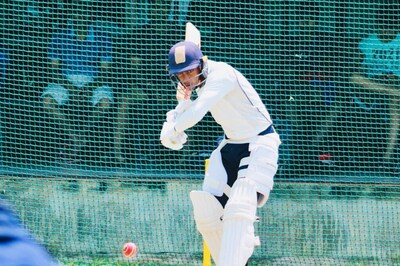

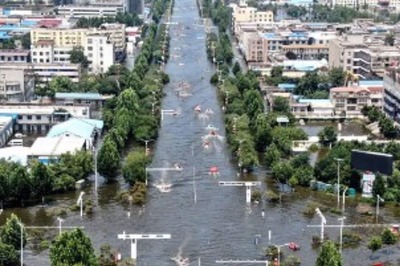

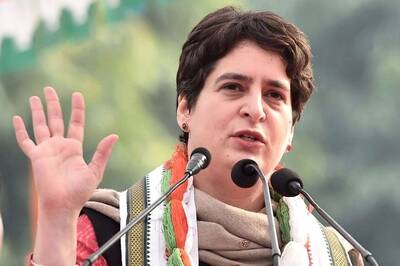

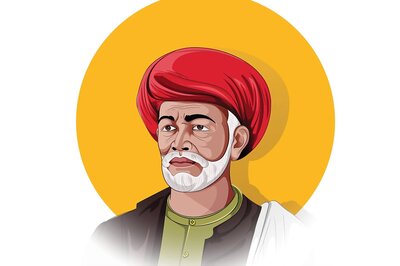
Comments
0 comment